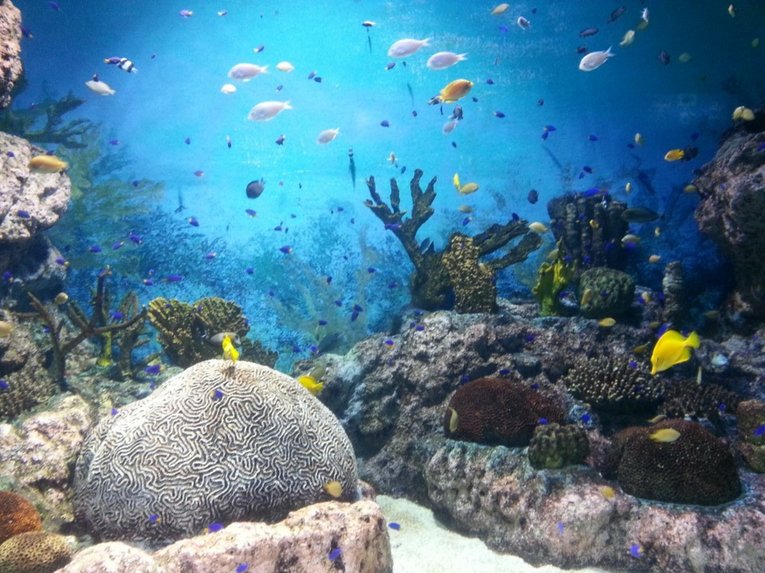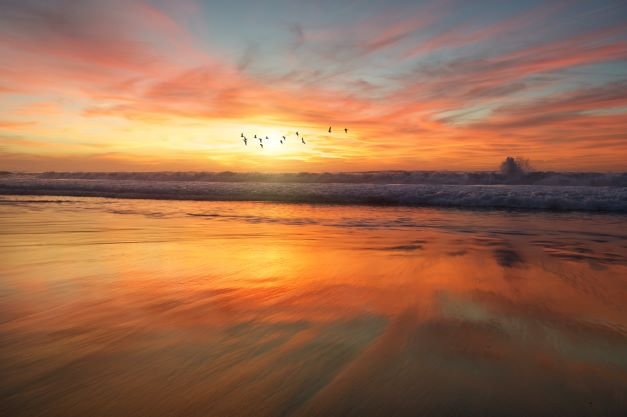
Positive ocean news: March edition
It’s been a good month for our ocean, so we’ve rounded up some positive news stories from March to celebrate.
Historic agreement reached to protect international waters

Credit: Ant Rozetsky
After over 15 years of talks and a final 36-hour negotiation, U.N. member states agreed on a legally binding treaty to protect international waters.
The landmark agreement, reached by 193 nations, will provide a legal framework for establishing Marine Protected Areas in areas of sea that lie outside national boundaries – which accounts for almost two-thirds of the ocean. Until now, there has been no such framework.
This will help protect marine habitats and wildlife in the high seas, as well as fulfil the 30x30 pledge made at the COP15 in December, which sets out to protect 30% of the Earth’s land and marine areas by 2030.
To facilitate the development and implementation of the High Seas Treaty, the EU pledged €40 million.
Public take action to ban disposable vape litter
Members of the public have shown their support for the campaign by sharing photos of littered vapes they find on social media, highlighting the prevalence of this pollution.
Man sets out to rewild over seven acres of kelp beds in Sussex

Credit: Ben Wicks
Steve Allnutt in West Sussex has set up tanks in his garage, in which he grows kelp collected from freediving, with the hopes of planting them to help rewild 7.4 acres of kelp beds.
The tanks, of which there are over 20, and light in the garage mimic natural ocean conditions for the algae to grow. Steve plans to plant the kelp, along with oyster shells which grow them, in kelp beds in Sussex.
To fund the project, Steve launched a crowdfunding scheme, raising over £3,000 and securing donations of oyster shells for the kelp to grow on from restaurants. After the planting is completed, Steve hopes to secure funding and a permit for a boat so he can dispatch the kelp and run the project year-round.
Read more on the Guardian website
Marine biodiversity commitments worth $20 billion pledged at ocean conference
Several pledges were made to expand current marine protected areas (MPAs), with the host country, Panama, committing to expand its Banco Volcán MPA by 36,058 square miles. The expansion of the current 5,487 square mile MPA would bring the total of marine areas with protection in Panama to 54%.
Read more on the Mongabay website
Three marine habitats in England to receive highest levels of protection
Allonby Bay (Irish Sea), Dolphin Head (Eastern Channel) and North East of Farnes Deep (Northern North Sea) are home to a variety of wildlife and will receive the highest levels of protection. This will allow the habitats and species to recover from damaging human activities and increasing marine biodiversity in the areas.
Harmful activities such as fishing, construction and dredging will be banned in the areas, protecting the feeding and nursery grounds for fish, and safeguarding ‘blue carbon’ habitats to help tackle climate change.
Read more on the Oceanographic website
Local group secures bins to prevent cigarette butts from entering ocean

Credit: Ullapool Sea Savers
As part of its Drain Campaign, the Ullapool Sea Savers, a local marine group based in Scotland, has teamed up with Megan from the ‘No Ifs No Butts’ campaign, the Highlands and Islands Climate Hub, and local business, The Ceilidh Place to secure three ‘ballot bins’ for the village of Ullapool.
The bins ask the public to ‘vote’ with their cigarette butts, by disposing of them in one of two slots underneath a question. This encourages people to dispose of their butts properly rather than littering them on the streets and in drains, where they make their way into the sea and release a cocktail of chemicals and microplastics into the environment.
Read more on the Ullapool Sea Savers website
Blue whales to have 'safe haven' in Chile
The area is the most important feeding and breeding area for blue whales in the Eastern South Pacific, which are listed as an endangered species and of which there are only a few hundred remaining. This group of whales vocalise or ‘sing’ differently to other blue whales and even have their own dialect, making them globally unique.
It’s hoped that the new Marine Protected Area in Chile will be a key step in protecting this blue whale population, whose recovery is at risk from marine traffic which frequents their feeding and breeding grounds.
Read more on the Mongabay website
Seagrass seeding begins in major marine restoration programme
Restoration Forth aims to restore seagrass habitats and native oyster populations in the Firth of Forth. As part of the three-year programme, volunteers and community members are planting around 25,000 seagrass seeds, mixing them with local sediment and injecting them into the ground.
It’s hoped that by the end of 2024, almost ten acres of seagrass will be restored in the area, where it will improve biodiversity by providing food and shelter for marine life, improving water quality, and capturing carbon.






